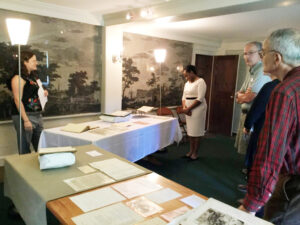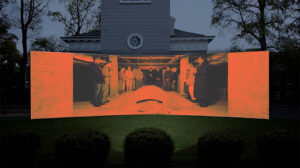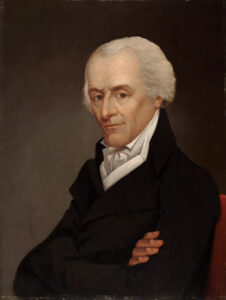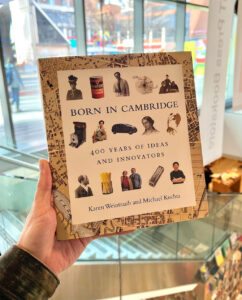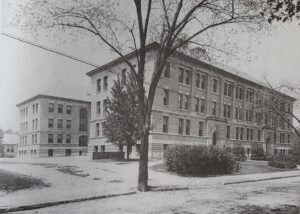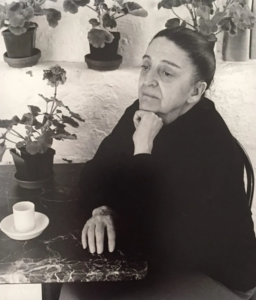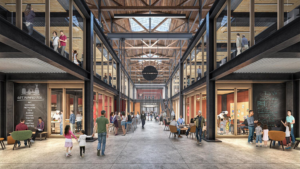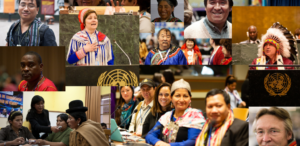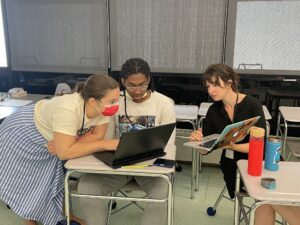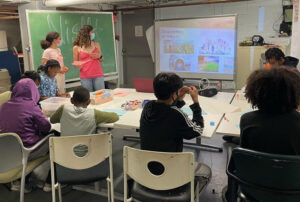Cambridge Open Archives is on Instagram Live, offers access to ‘Morbid, Morose and Macabre’
The annual free Cambridge Open Archives, sometimes called the Cambridge archives crawl, is back after a pandemic pause – and now online. Some delving into historical records citywide is already available, and other events are streaming on Instagram Live as soon as Monday morning.
Read More‘Here Lies Darby Vassall’ fall art installation makes the invisible visible at Christ Church
There’s an inaccessible, largely unknown tomb in the basement of Christ Church – and it’s being shared with the public via a looped video projection telling the story of collusion with, dependency on and profit from the slave trade.
Read MoreThe ‘Gerry’ of ‘Gerrymandering’ was one of ours, co-writer of the Bill of Rights and a vice president
Elbridge Gerry was described as cunning, obstinate, contrarian, contradictory and unpredictable – and what he did in 1812 is still shaping politics and democracy, including the upcoming midterm elections.
Read More‘Born In Cambridge’ authors plan a walking tour this month of Cambridgeport and its innovations
In their new book, “Born in Cambridge: 400 Years of Ideas and Innovators,” Karen Weintraub and Michael Kuchta argue that “the story of Cambridge reflects the story of America … Major events and trends that affected the nation left fingerprints here, too.” How the city and its residents react to those forces, though, makes for a compelling story of invention, reinvention and adaptation spanning four centuries.
Read MoreHigh school foundations date back to 1800s; Parents’ moral panics go back almost as far
This article tackles the history behind Cambridge high schools and how the Cambridge Rindge and Latin School came to be where it is today.
Read MoreEliodora ‘Josefina’ Yanguas Perez opened Harvard Square’s first European-style café
Today there are at least 20 cafés in Cambridge where patrons can enjoy espresso drinks. In 1959, there was exactly one. That was the year Spanish immigrant Josefina Yanguas opened Café Pamplona on Bow Street.
Read MoreThe Foundry and Squirrel Brand Apartments share something: examples of adaptive reuse
Adaptive reuse – revitalizing an existing, often imperfect, structure for new purposes – exists in many forms, but is often good environmentally. From refurbishing building materials to “cultural recycling” of entire structures, it means avoiding complete demolition.
Read MoreBeing an ally to Indigenous people isn’t difficult, from calling legislators to learning town names
Tuesday is the 28th annual International Day of the World’s Indigenous People. It commemorates the first meeting held by the U.N. Working Group on Indigenous Populations of the Sub-Commission on the Promotion and Protection of Human Rights. Each year on this day, governments and organizations come together to participate in educational seminars and meet to discuss the prominent social issues Indigenous peoples experience worldwide.
Read MoreIn identifying ways to improve neighborhoods, one lesson is: Students must get out and explore
Rising seniors in the Cambridge Harvard Summer Academy were hard at work assuming the role of activists this summer in their English class. Students were tasked to identify, investigate, analyze and evaluate a single problem or issue they identify in their neighborhood. From there, they developed a small, feasible solution that they submitted through the Cambridge participatory budget submission portal, which was open through Sunday.
Read MoreYouth-led social justice movements lead the way in Cambridge around issues of race and climate
The goal for my History Cambridge fellowship, starting in February, was to connect the history of the city with issues affecting its teenage and young-adult residents, raising awareness and promoting action. As my fellowship comes to a close, I’ve learned a lot from teens around Cambridge that has changed my perspective and added to my understanding of various topics and experiences.
Read More
